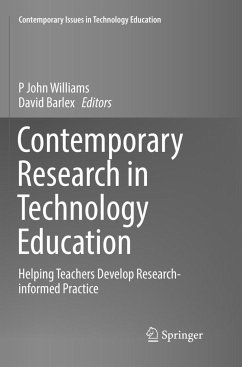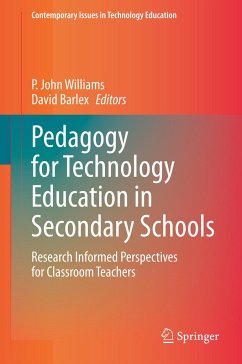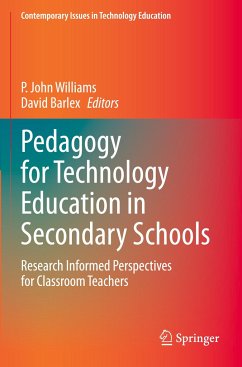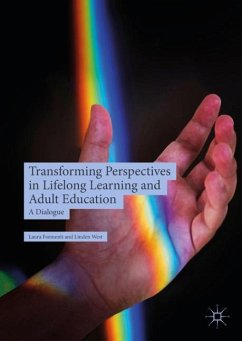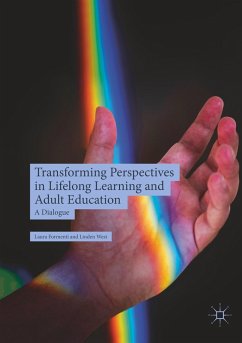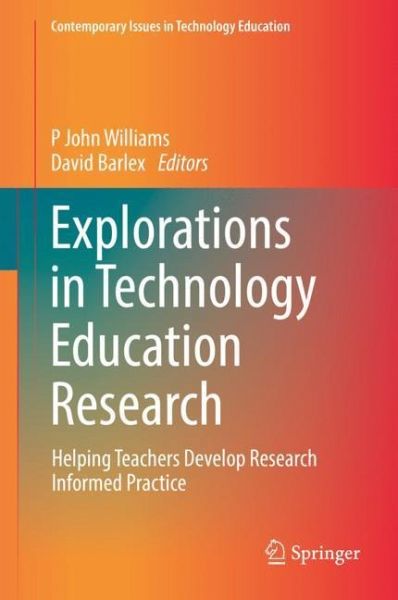
Explorations in Technology Education Research
Helping Teachers Develop Research Informed Practice
Herausgegeben: Williams, P. John; Barlex, David

PAYBACK Punkte
49 °P sammeln!
This volume brings together significant international research in technology education by focusing on contemporary postgraduate research, elaborating on the findings with the aim of making the content relevant to researchers, teachers and other potential researchers in the field. The book shares with readers what the research means for classroom teachers through understanding different motivations for teaching technology in schools and observing the model of learning supported by the research. Each chapter in the book includes references to the digital edition of the respective full thesis, al...
This volume brings together significant international research in technology education by focusing on contemporary postgraduate research, elaborating on the findings with the aim of making the content relevant to researchers, teachers and other potential researchers in the field. The book shares with readers what the research means for classroom teachers through understanding different motivations for teaching technology in schools and observing the model of learning supported by the research. Each chapter in the book includes references to the digital edition of the respective full thesis, allowing readers to consult the research in detail if necessary.
This book continues the work done by 2017's Contemporary Research in Technology Education by the same editors.
This book continues the work done by 2017's Contemporary Research in Technology Education by the same editors.



